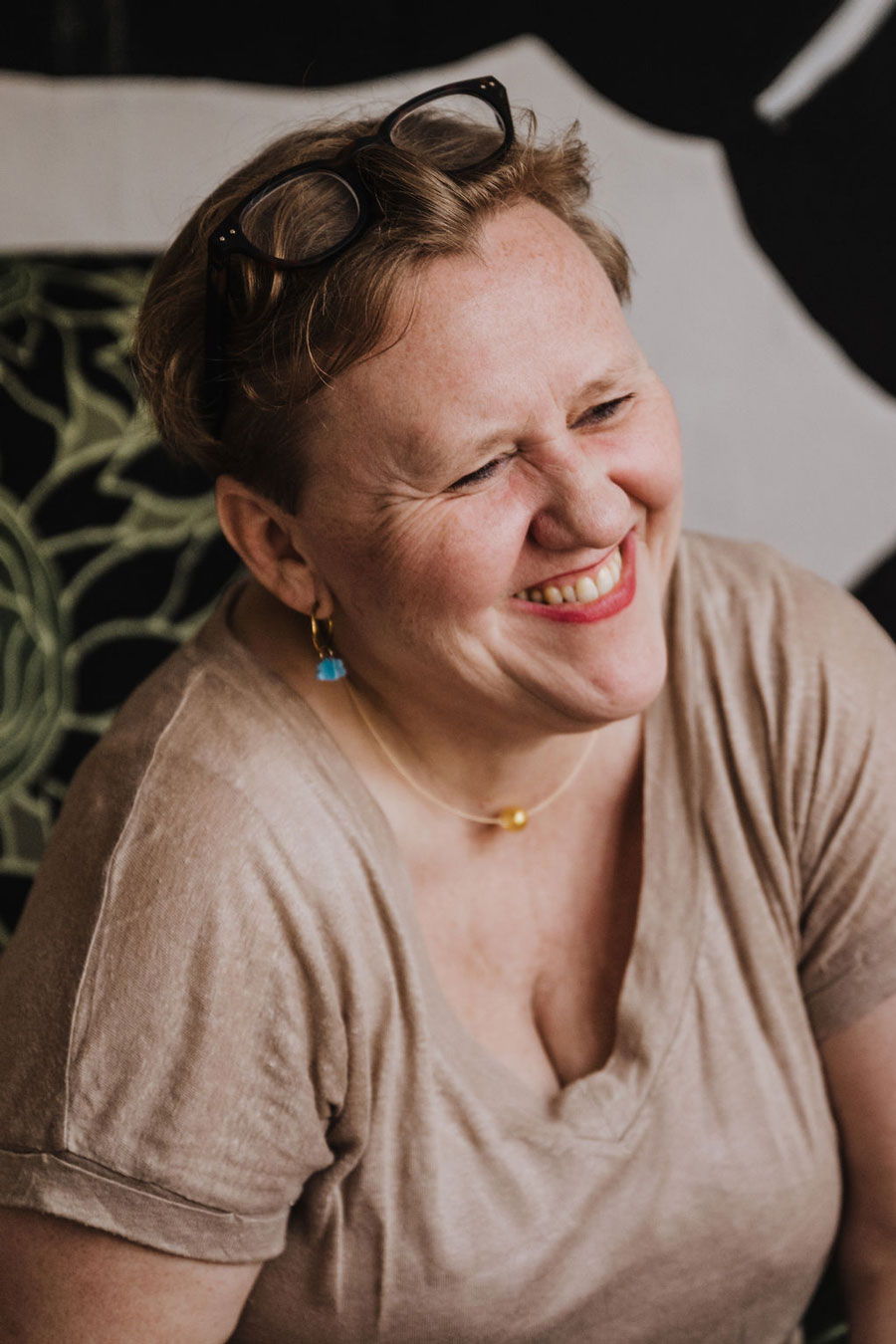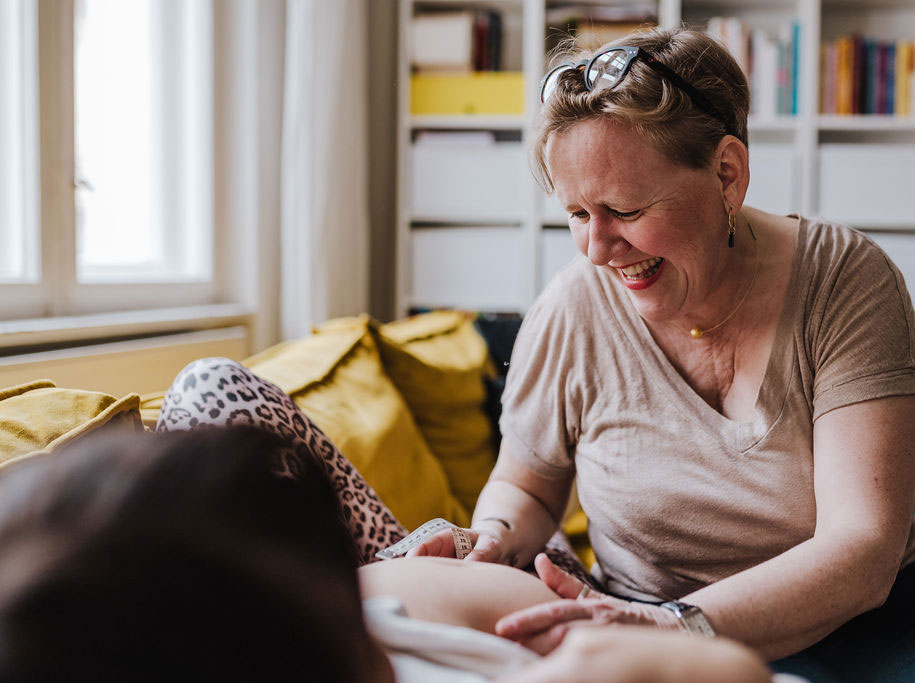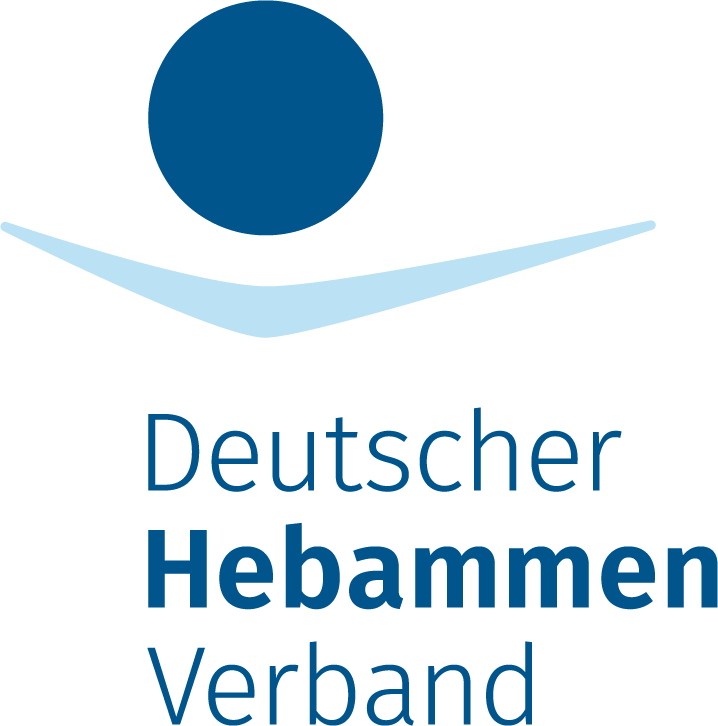Midwife Gerlinde Skupin
Giving Birth in Safety and Care
As a midwife in Berlin, I accompany and support pregnant people regardless of their chosen place of birth. From the very beginning of pregnancy through to the introduction of solid foods – I am there to provide holistic care and comprehensive guidance.
Midwifery Care
Midwifery means: taking time, listening, being there.
Midwives support pregnant people from the very beginning of pregnancy through to the introduction of solid foods – providing holistic care and comprehensive guidance, regardless of the chosen place of birth. The right to this care is legally guaranteed.
The earlier pregnant people get in touch with a midwife, the stronger the relationship of trust that can grow throughout pregnancy. This trust can have a profoundly positive effect on pregnancy, birth, and the breastfeeding and early nutrition period after birth.
Anytime – for everyone
Every pregnant person, regardless of skin colour, religion, gender identity, sexual orientation or background, can contact me at any time with concerns or questions about the start of labour.
You’ll find what my care includes, how I can support your individual needs, and what the legal framework provides in my FAQ section. If you have any further questions, feel free to get in touch — email is best.
The Midwife

(she/her)
Die Hebamme | Gerlinde Skupin
The Midwife | Gerlinde Skupin


(she/her)
I am often asked why I chose to become a midwife. What fascinated me most was the independence of the profession and the unique combination of ancient knowledge, intuition, and modern medical technology. After reading many books on childbirth, completing a hospital placement in Bremen, my three-year training at Neukölln Hospital (1986–1989), and a short time working as a qualified midwife at Urban Hospital, I joined a midwifery practice in Berlin Wilmersdorf where we supported both clinic births and home births. This fulfilled my idea of what midwifery means: being there for people during pregnancy and the postnatal period – and, if wished, also during a home birth.
A year later, in 1991, I established my own practice based on this approach to care. Today, I am married, have an adult son, and live in Berlin Zehlendorf.
My wish has remained the same: to support pregnant people in their desire for a self-determined pregnancy, birth, and breastfeeding or early nutrition period with holistic and respectful care. And my passion for my profession is still as strong as ever.
Through regular professional development, I have gained additional knowledge in evidence-based practice, emergency care, and alternative approaches to treating discomfort. I greatly value the continuous exchange with colleagues and have been a member of the German Midwives Association since 1986. Since 2020, I have also been a training supervisor, with one to three student midwives each year completing part of their education with me.
Most of all, however, I have learned through my work with families and continue to grow with every new encounter.
Pregnancy
Support throughout pregnancy
By your side – for everything that matters to you
Pregnancy is a unique journey – sometimes gentle, sometimes overwhelming.
During this time, I offer experience, calm support, and an open ear for everything that is on your mind. Below you’ll find an overview of the services I provide during pregnancy. Together, we focus on your individual needs and questions, which we discuss during home visits.
This also applies to the care of high-risk pregnancies – for example with bleeding, multiple pregnancies, breech position, or medical conditions affecting the baby or the pregnant person. Time and again, I see how important attentive, personal care is, and how much pregnant people benefit from this essential midwifery work.

Confirmation of pregnancy
On request, I can confirm the pregnancy.
Advice and support
I take time for your questions, thoughts, concerns, or discomforts – whether they relate to nutrition, birth, breastfeeding, newborn care, or choosing a place of birth.
Maternity record & antenatal check-ups
I provide the official maternity record and carry out the antenatal examinations it includes. This can be done solely by me, by your gynaecologist, or shared between both.
Care in high-risk pregnancies or illness
I am also there for you in high-risk situations – such as bleeding, multiple pregnancies, breech presentation, or medical conditions affecting the baby or the pregnant person.
Natural relief for discomforts
For issues such as premature contractions, iron deficiency, or sacral pain, I advise on natural and holistic ways to find relief.
Support with fears or uncertainties
I listen carefully, take your feelings seriously, and provide guidance if you experience anxiety or insecurities during pregnancy or as a result of a previous birth.
Referral to additional specialists
Over the years, I have built a trusted network of colleagues, doctors, and professionals in fields such as osteopathy, laboratory diagnostics, or breastfeeding support. This network is also invaluable in cases of cover or illness.
Round-the-clock availability for urgent questions
Every pregnant person can reach out to me at any time, day or night, with urgent concerns or questions about the start of labour.
Birth | Home Birth
For a planned home birth, we will go through a checklist together in advance – what needs to be prepared, how to recognise when labour is starting, and when it is time to invite me to your home.
We will also talk about how the birth may unfold. My aim is always to support and strengthen the birthing person and their partner or chosen companion with individual, respectful care and trust in the natural birth process.
We will discuss in detail how and why a planned home birth might be transferred to hospital, and what happens there.
It is important to me to accompany you to the hospital of your choice and to be prepared for emergencies – which is why I take part in regular emergency training.
Home birth care has always been close to my heart, and for this reason I consciously decided against holding an affiliation contract with a hospital.
Every home birth remains a true gift to me, and I am deeply grateful to all the families who have placed their trust in me and my work.
How does a home birth take place?
During labour, I regularly check the baby’s heartbeat, observe the progress of birth together with you, and offer guidance if needed – on positions, massage, breathing, or medical questions. Many birthing people naturally find their own rhythm and position, supported by their partner or chosen companion. Siblings are also welcome to be present, provided there has been thoughtful preparation and discussion with the family.
What role does self-determination play in a home birth?
Many wishes are self-evident at a home birth: giving birth without episiotomy or tearing, eating and drinking during labour, changing positions, birthing in water, using essential oils, candles or music, choosing who is present, allowing the umbilical cord to finish pulsing, and more. Every suggestion or question is welcome.
What happens in emergencies or if the birth needs to be transferred to hospital?
We will carefully discuss beforehand how and why a transfer might be necessary, and what happens once at the hospital.
In an emergency, I accompany you to the hospital of your choice, exchange information with the colleagues who then take over, and remain with you until it is clear how things will proceed.
Nine out of ten transfers take place calmly and without haste.
What happens immediately after birth?
After birth, there is always plenty of time for bonding between the birthing person, the baby, and, if present, the partner. If needed, I support with the first breastfeeding, chestfeeding, or feeding. Only afterwards do further examinations take place.
What care options are available in a home birth?
Birth is a natural process that usually requires no intervention. Often, simple measures such as changing position, massage, natural remedies or aromatherapy oils are sufficient. The focus of my work is on continuous, confident and experienced support – which has been shown to significantly reduce the need for medical interventions.
How long do you stay with us after the birth?
To ensure everyone has time to settle in peacefully, I usually stay for around three hours after the birth – supporting with the first time getting up, helping to tidy up, and completing the necessary paperwork.
The latest statistics on out-of-hospital midwifery care can be found on the website of the Society for Quality in Out-of-Hospital Midwifery Care (Gesellschaft für Qualität in der außerklinischen Geburtshilfe e.V. – QUAG e.V.) at www.quag.de (German language).
After the Birth
Postnatal period & feeding time
Trusted support for your very first steps together
After an out-of-hospital or outpatient birth, and also following a hospital stay, every birthing person in Germany is entitled to midwifery care.
In the first days after birth, I visit daily; later the visits take place at longer intervals. Regular appointments usually end after 8 to 12 weeks.
Up until the end of breastfeeding or bottle-feeding, you can continue to reach out with questions. In cases of greater difficulty, gynaecologists or paediatricians can prescribe additional visits.
During this intense and often demanding time, many families find regular visits from a midwife enormously reassuring. Especially at the beginning, there are many questions and sometimes concerns. I am there to support and encourage you as you find your own way – in adjusting to your changing body, in caring for your new little one, and in growing into life as a family.
We will discuss feeding questions and observe all the processes of recovery and adjustment together. The postnatal period lasts for eight weeks – a time in which you are entitled to rest and to settle in with one another as calmly as possible.
Tips & Links
When it comes to discomforts during pregnancy, birth and the postnatal period, the number of tips available online can feel overwhelming. I deliberately choose not to list my own “home remedies” here, because I believe it is important to discuss symptoms individually in a personal conversation.
There is a wide range of alternative methods for easing complaints during pregnancy, labour and the postnatal period. Deciding on a focus is not always easy for midwife and birthing person alike. Talking together often helps to clarify wishes and expectations, and to decide on measures that will be most beneficial. In some cases, referral to a specially trained professional – for example, an osteopath – may be appropriate.
To deepen my knowledge, I have undertaken further training in natural medicine, particularly aromatherapy, herbal medicine, and homeopathy. I believe it is better to master a few fields thoroughly than to practise many only superficially.
In principle, I assume that healthy pregnant people and new parents do not require treatment, and for this reason I use prophylactic measures only carefully and by agreement. The same applies to newborns.
Through cooperation with colleagues and other medical professionals, there is also the option of complementary care such as acupuncture and TCM, osteopathy, craniosacral therapy, massage, physiotherapy, yoga, advanced breastfeeding support from specially trained lactation consultants, family therapy, and various courses such as PEKJP baby massage, breathing therapy, and swimming for pregnant people and babies.
Questions & Answers
Q&A
Here for you
Here I have summarised the most common questions about my work as a midwife along with my answers:
What does pregnancy care include?
During pregnancy, my care includes consultations, support with discomforts, confirmation of pregnancy, issuing the maternity record, carrying out antenatal check-ups, and – if anything unusual arises – arranging further examinations such as ultrasound.
This can be done solely by me, by your gynaecologist, or in alternation between both. It also applies to high-risk pregnancies, such as with bleeding, multiple pregnancies, breech position, or health conditions affecting the baby or the pregnant person. Time and again, I see how much pregnant people benefit from attentive and personal midwifery support.
Can I be cared for by you during a high-risk pregnancy?
Yes. Even in cases of bleeding, multiples, breech presentation or medical conditions during pregnancy, I am by your side – with individual care and personal attention.
Can you also recommend doctors and other specialists?
Over the years I have built a trusted network of colleagues, doctors and professionals in fields such as osteopathy, laboratory diagnostics and breastfeeding counselling. I greatly value this network and also rely on it in cases of cover or illness.
What are the advantages of a home birth?
A home birth offers above all: calm, familiarity and self-determination. You can give birth in your own surroundings – in your own rhythm, with the people you have consciously chosen at your side. Many pregnant people find this both empowering and reassuring.
I accompany you with medical knowledge, experience and attentive care – so that you can feel safe and focus entirely on your baby. After the birth, you can immediately rest, cuddle, and simply stay where you are.
Do you also support people with fears or previous birth experiences?
Yes. I take time for everything that is on your mind – including insecurities or fears. Together we will find a place of birth and a framework that feels safe and nurturing for you.
What happens in an emergency or outside scheduled appointments?
I am here for you – even outside of planned visits. If you have questions or concerns about the start of labour, you can contact me at any time.
Does every birth in Germany require a midwife?
Yes. By law, a midwife must be present at every birth in Germany – whether in hospital or outside. For a planned out-of-hospital birth, such as at a birth centre, midwifery practice or at home, one midwife will be there to support you, and depending on circumstances or your wishes, a second midwife may also attend the birth. Each person or family is free to choose their place of birth.
Who covers the costs of midwifery care?
In most cases, statutory health insurance covers midwifery care – including antenatal check-ups, birth and postnatal visits. Private health insurers usually reimburse these costs as well (it is best to confirm in advance).
What does on-call availability for a home birth cost?
Many health insurers contribute towards the costs of on-call availability (usually between €250 and €500). My fee is based on income and personal circumstances – typically between €500 and €1,200, with an average of around €750. Payment in instalments is also possible.
Do you also offer antenatal or postnatal courses?
Due to the rise in professional liability insurance, I have decided not to offer courses and to focus instead on home birth care. However, I am happy to help you find a suitable course. There are many valuable options for antenatal preparation and postnatal recovery, and it is worth arranging this in good time.

